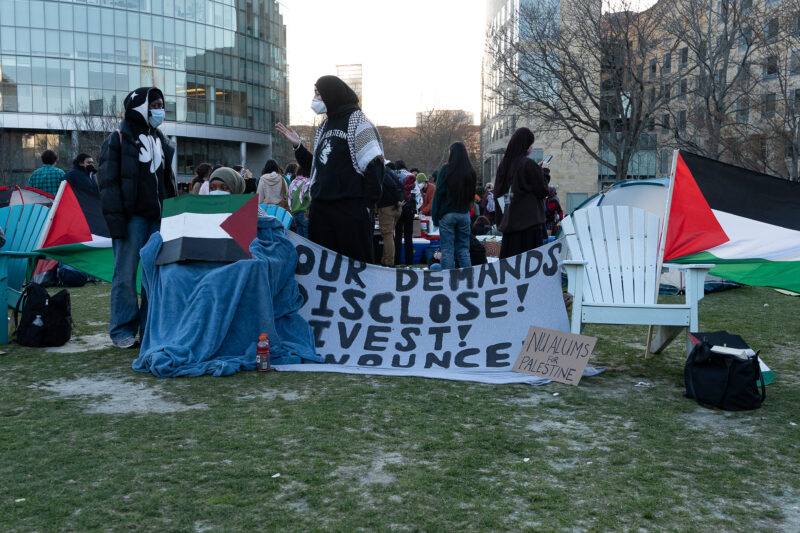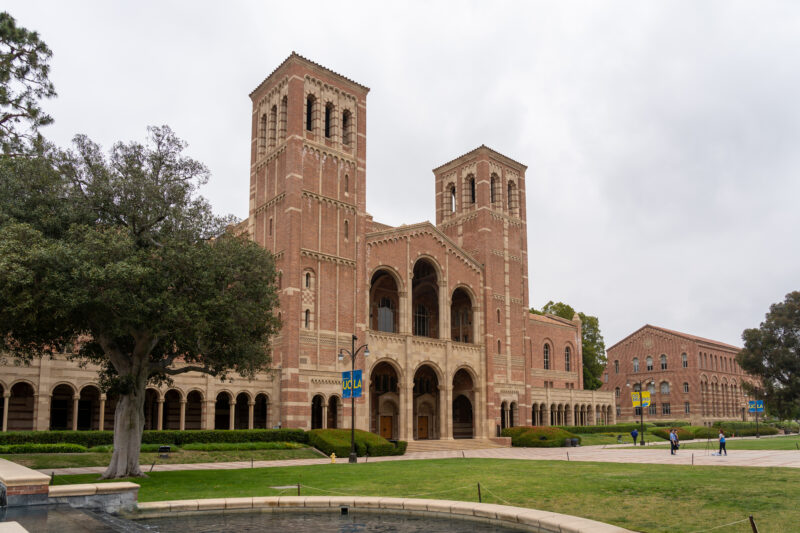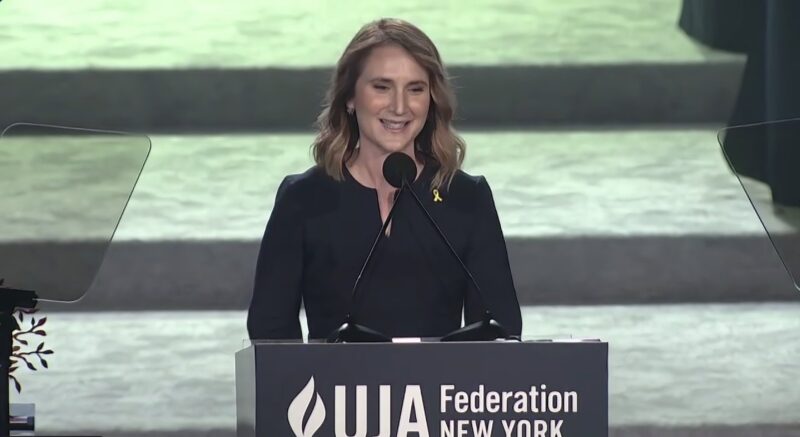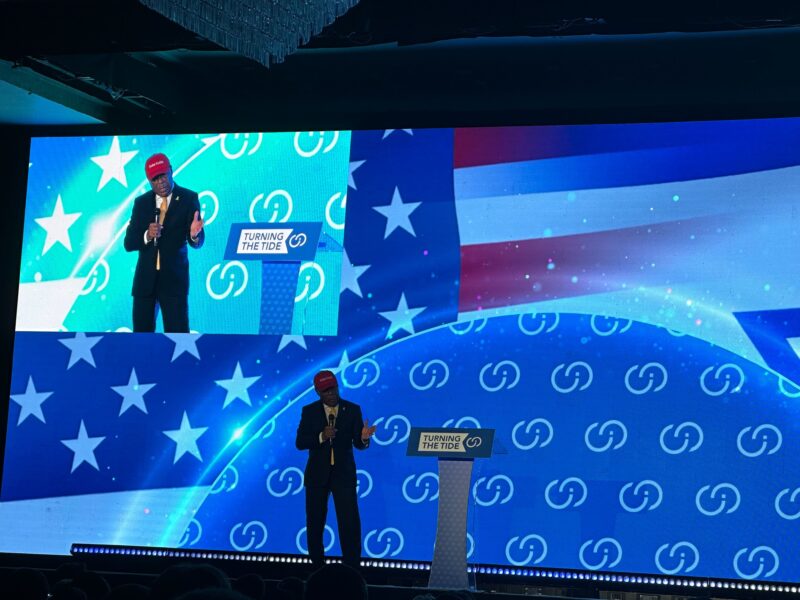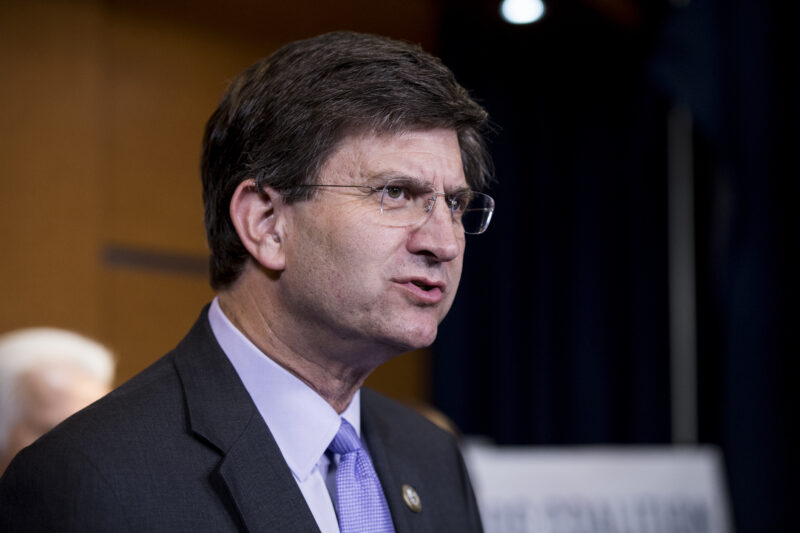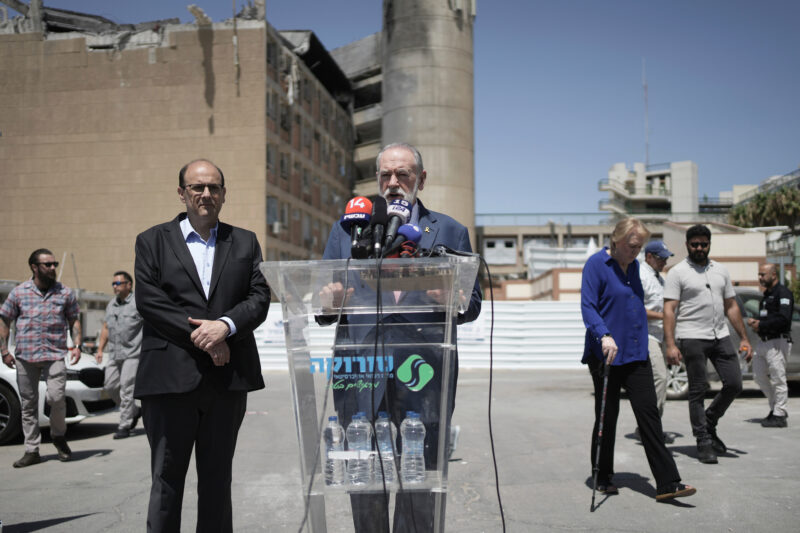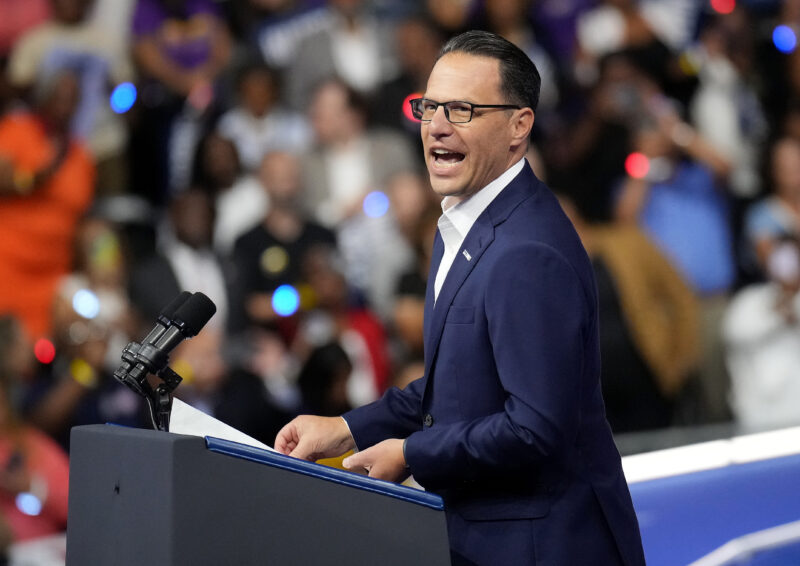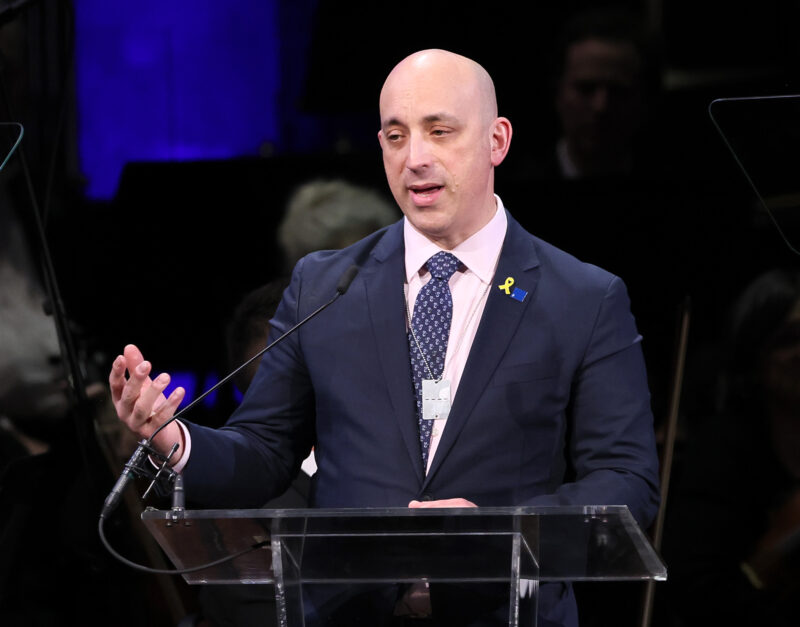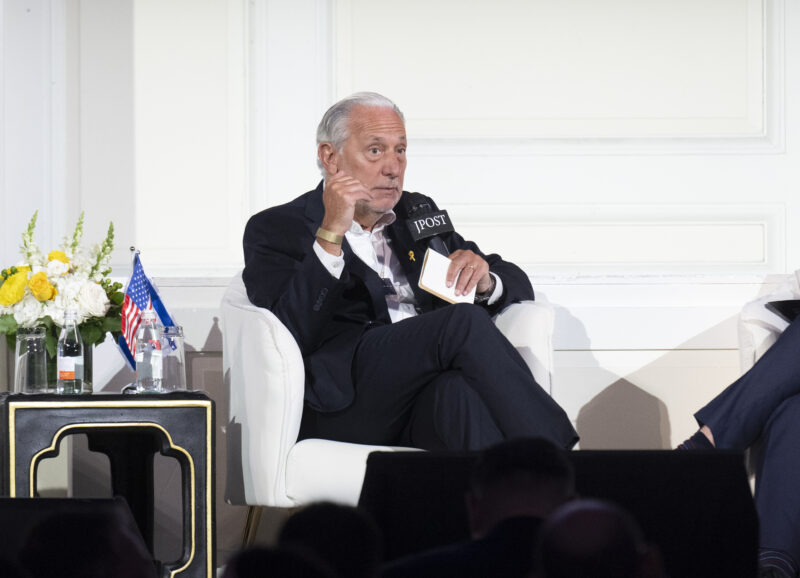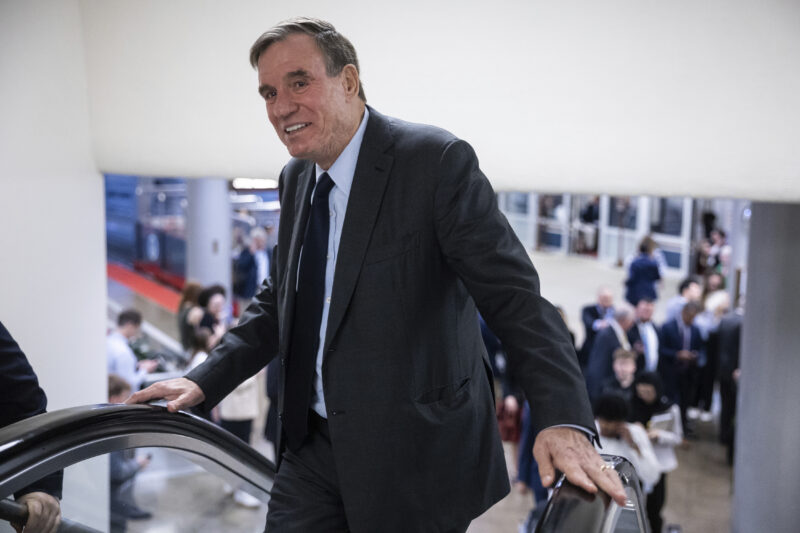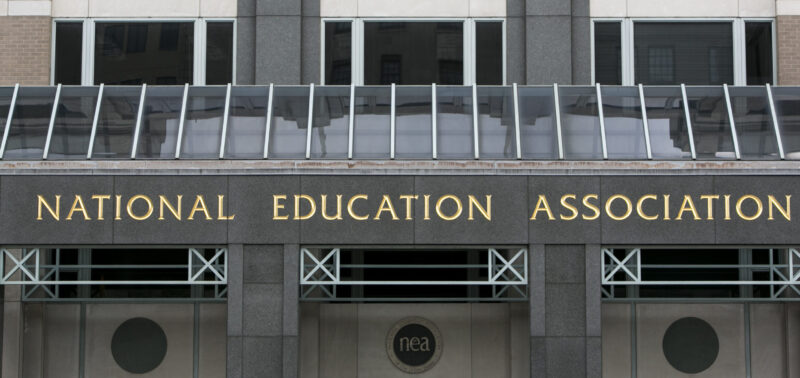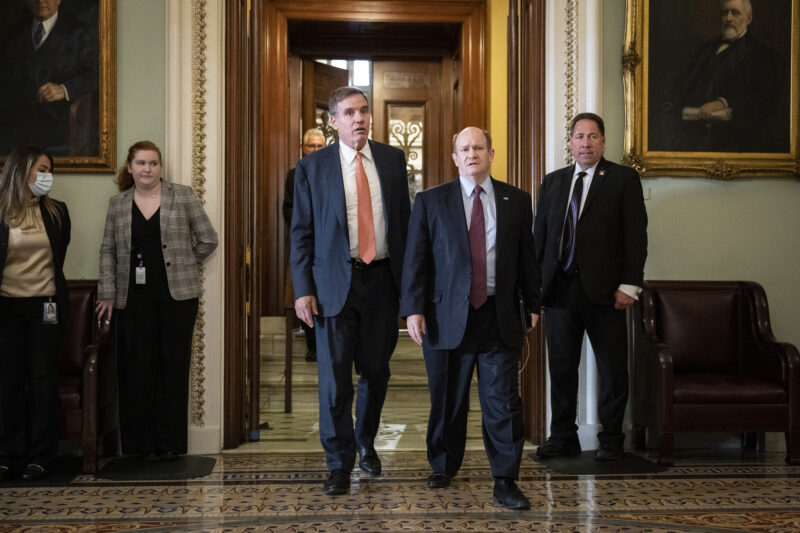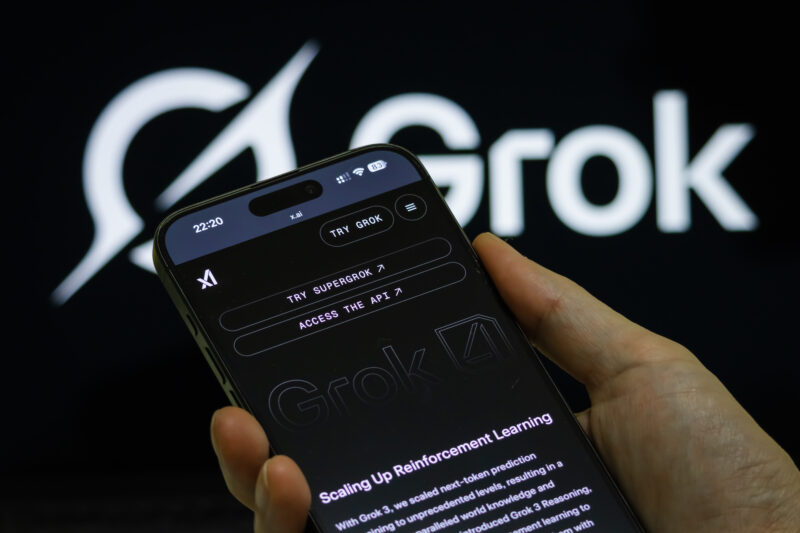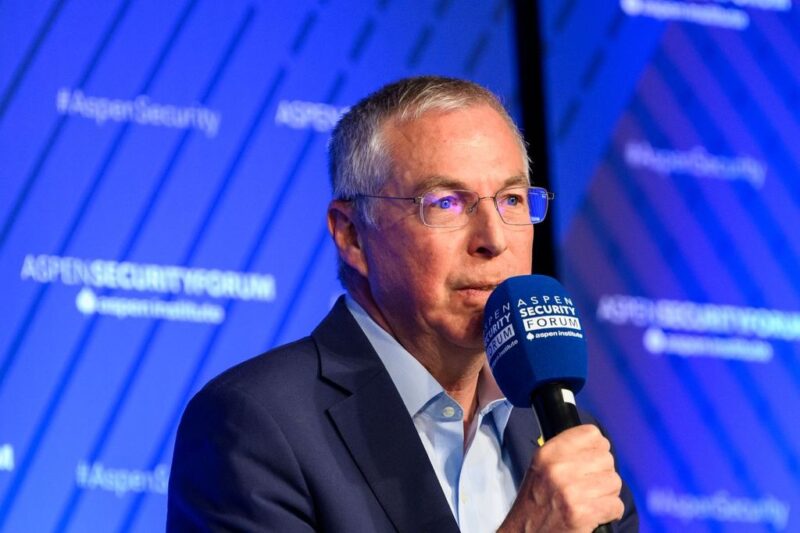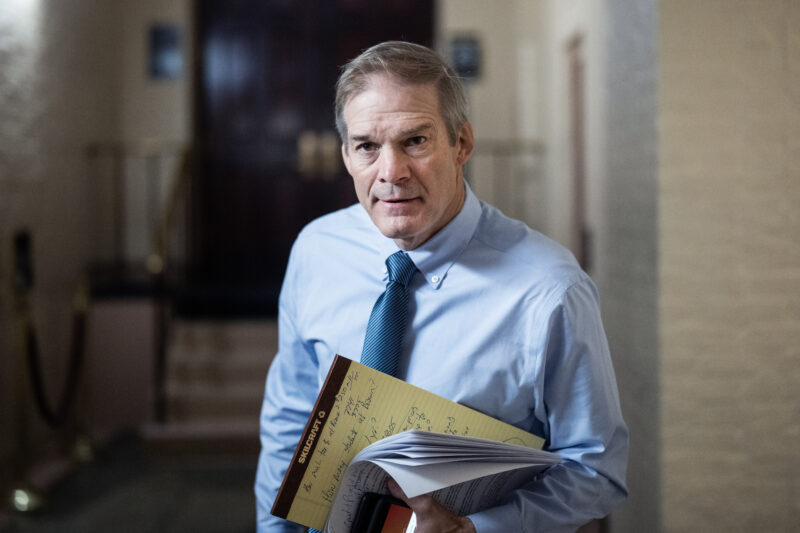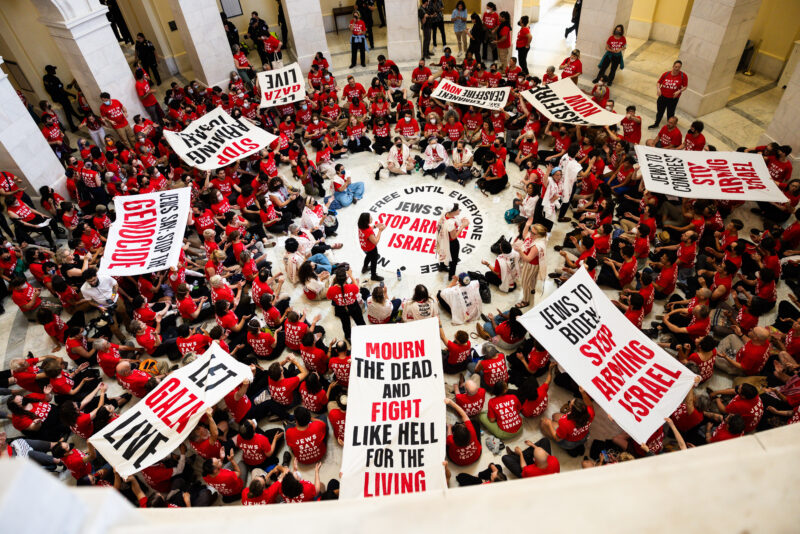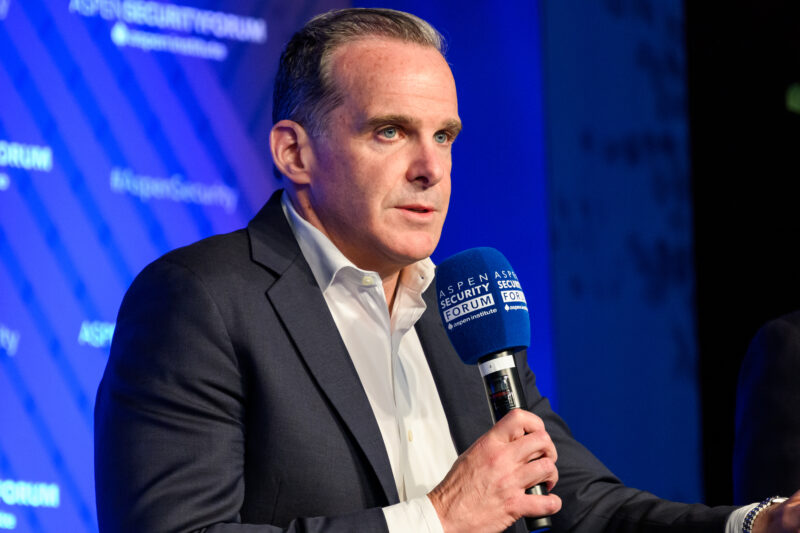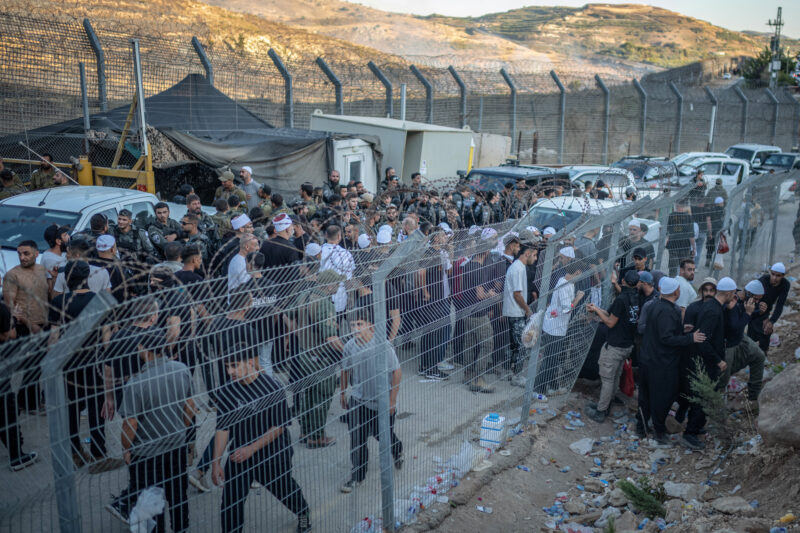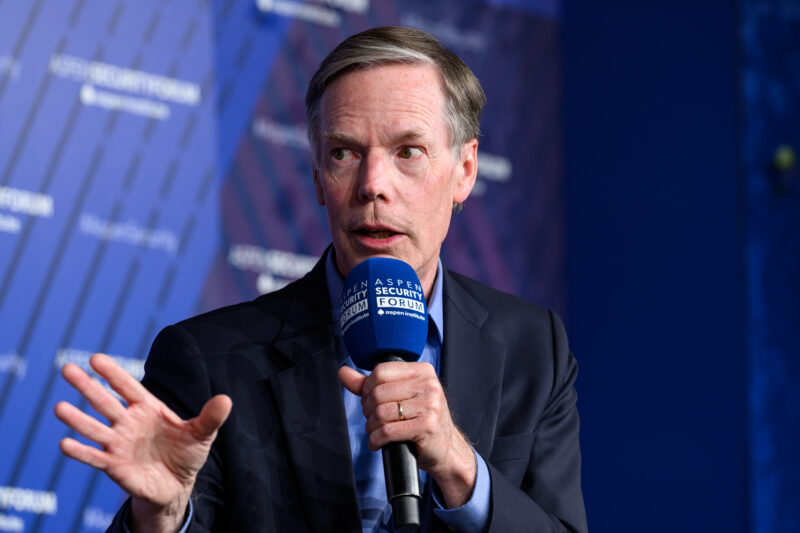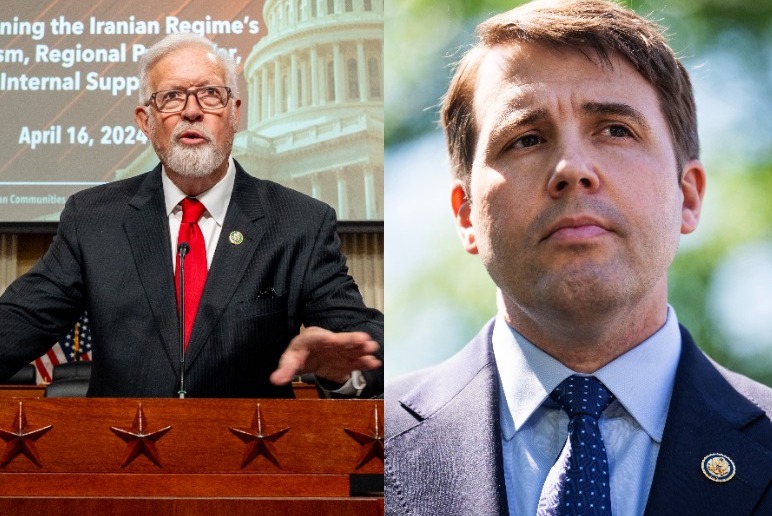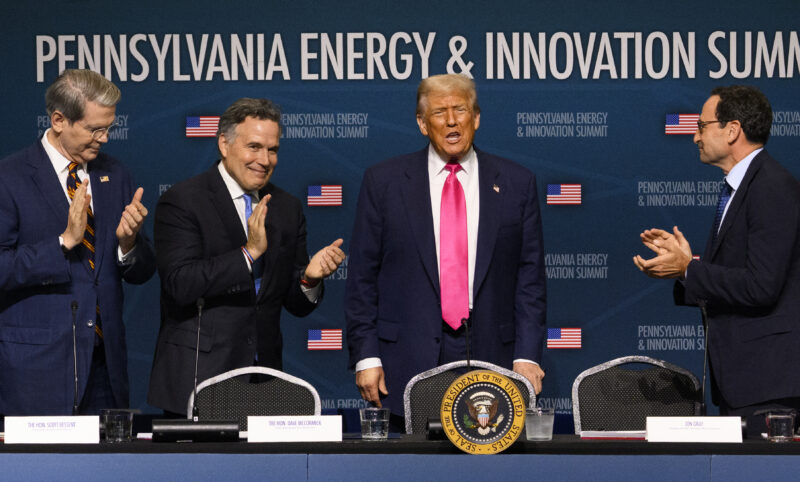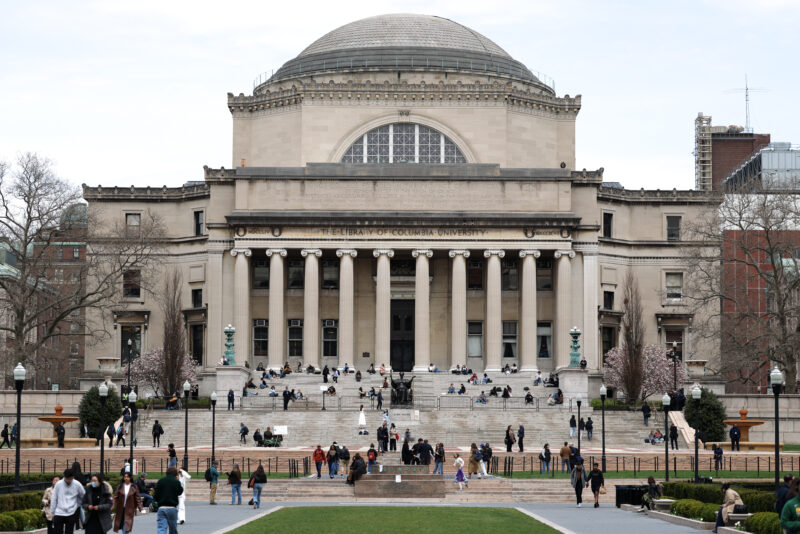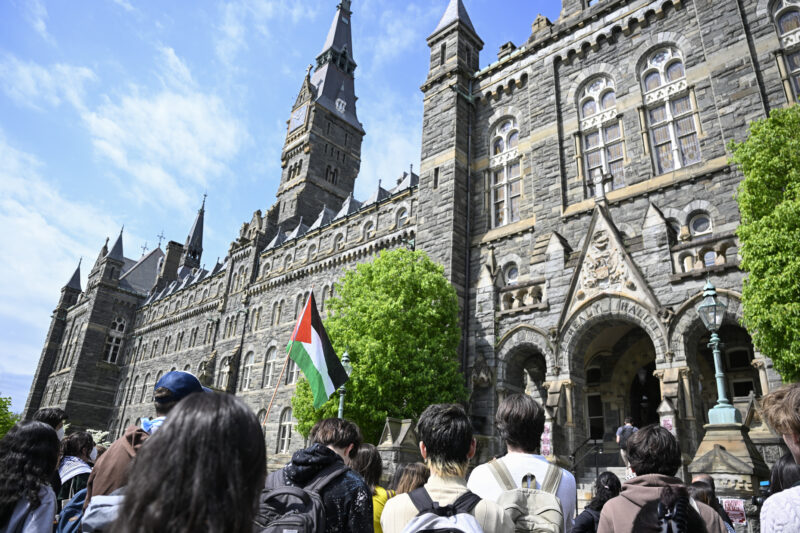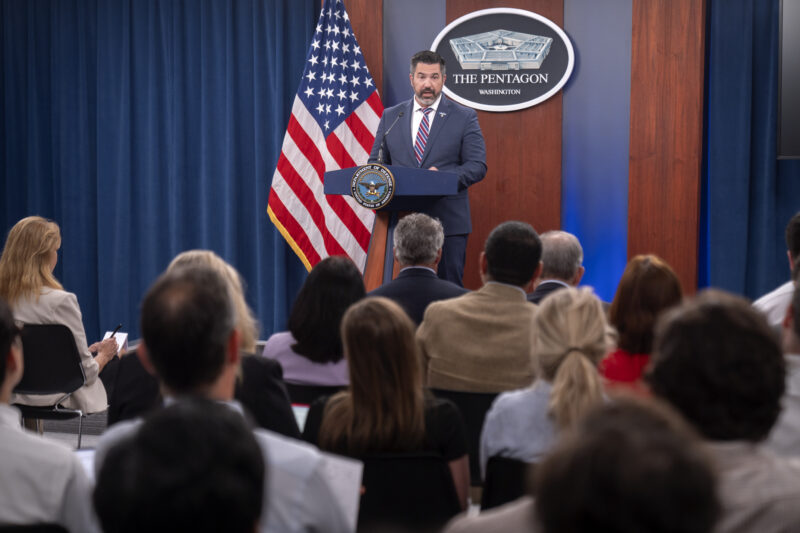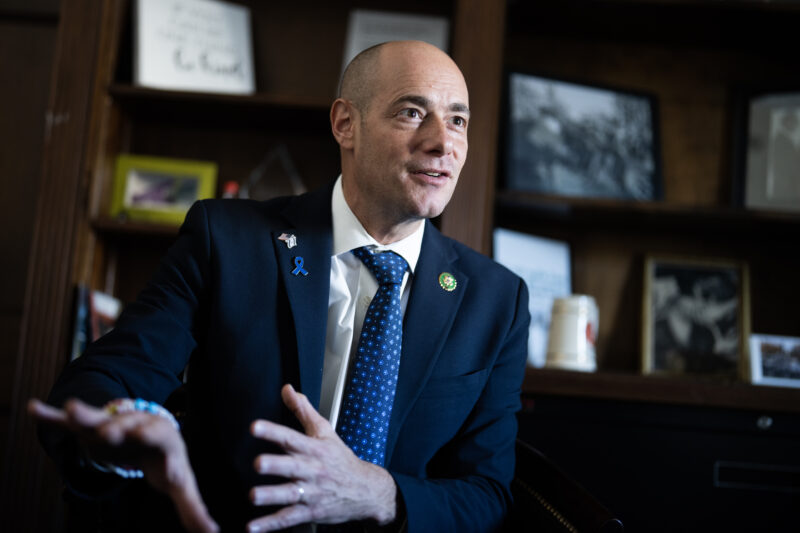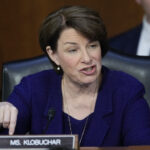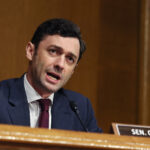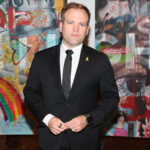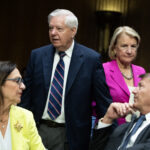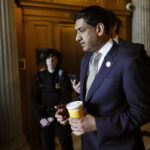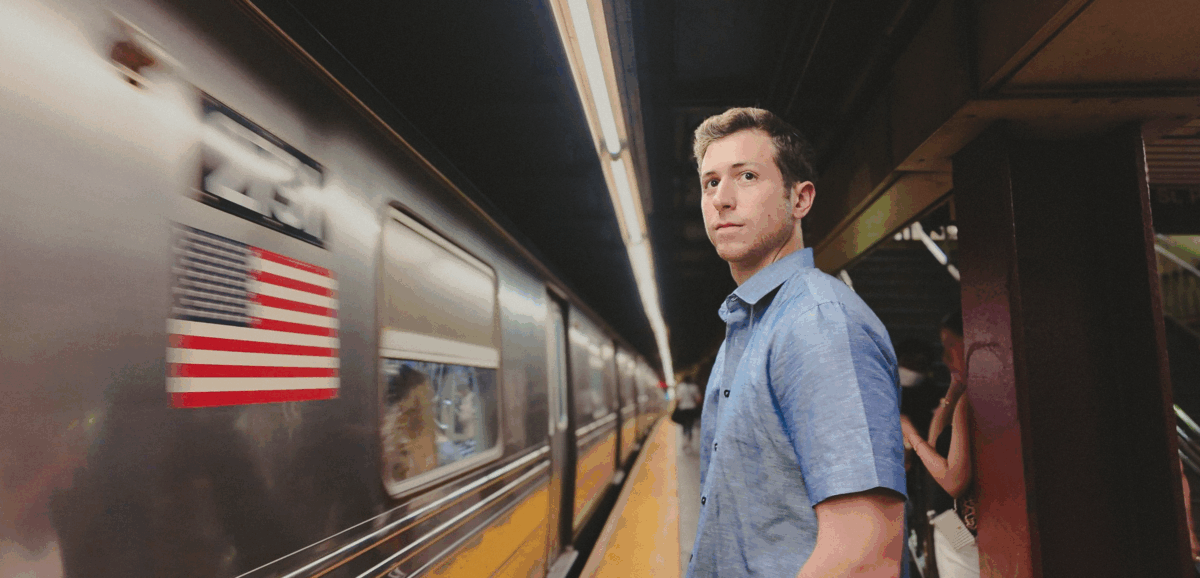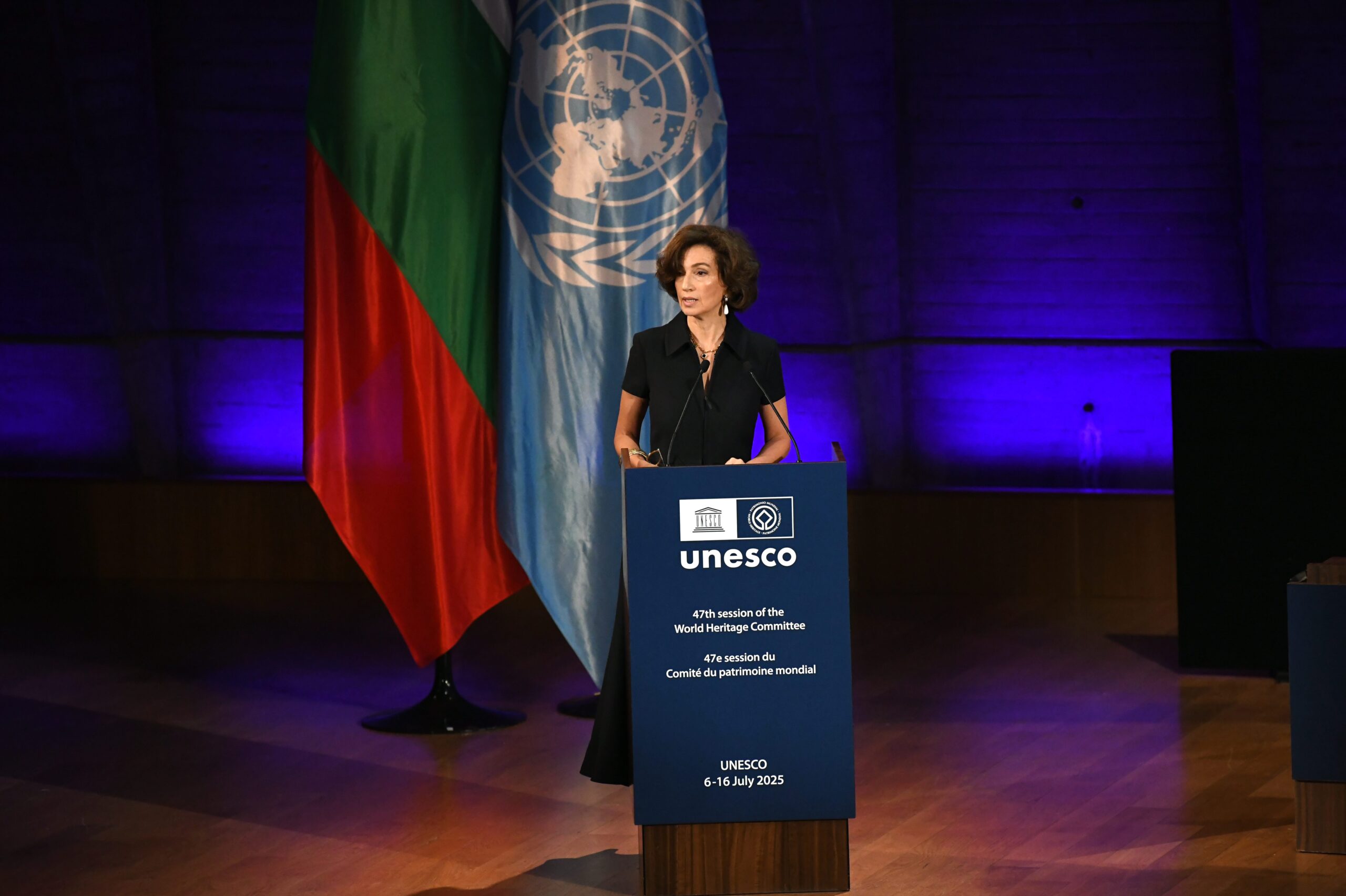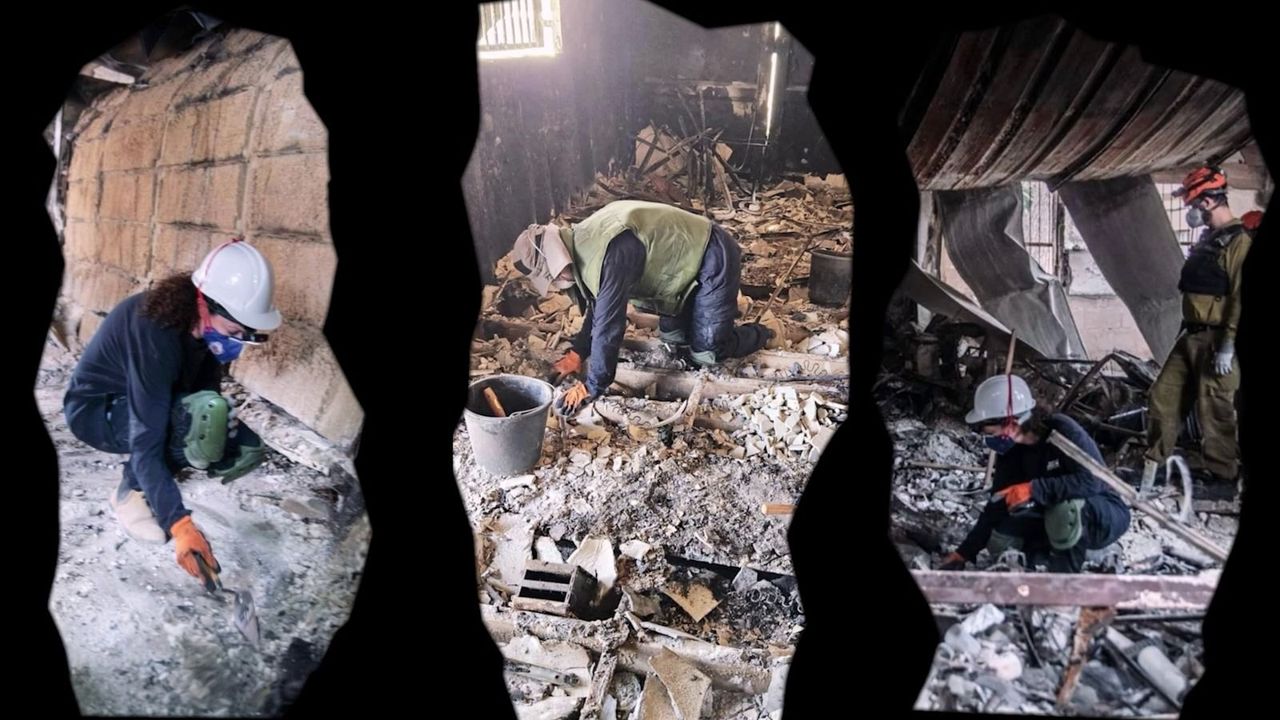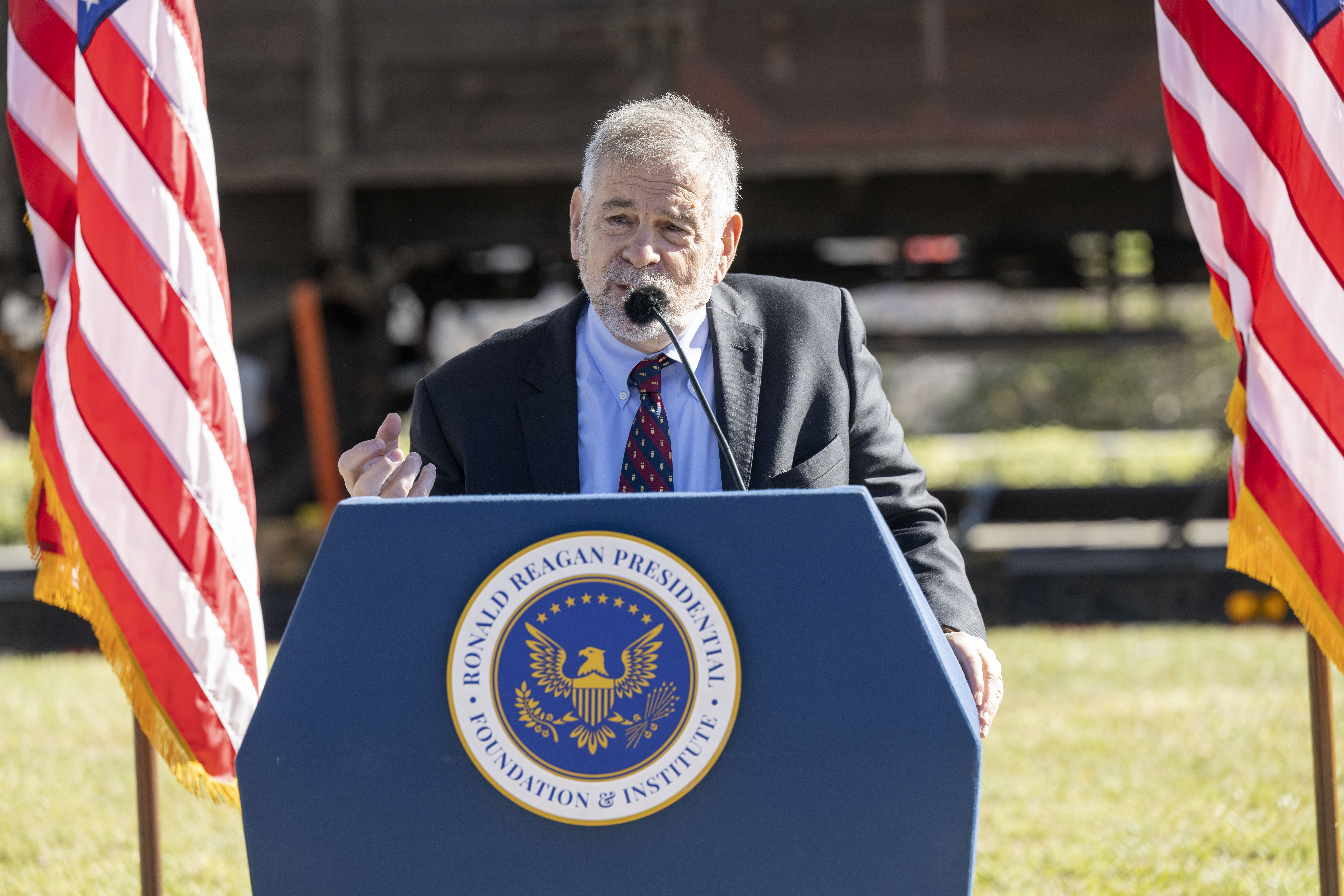Plus, a profile of UNESCO’s Audrey Azoulay

SAUL LOEB/AFP via Getty Images
President Donald Trump with Israeli Prime Minister Benjamin Netanyahu during the signing of the Abraham Accords.
Good Thursday morning.
In today’s Daily Kickoff we profile Audrey Azoulay, the Jewish French-Moroccan leader of UNESCO and report on last night’s Senate votes to block U.S. aid to Israel. We also detail comments by House Speaker Mike Johnson expressing strong concern about the humanitarian situation in Gaza. We cover Liam Elkind’s announcement that he will challenge Rep. Jerry Nadler (D-NY) in the Democratic primary and talk to Republican Sen. Thom Tillis about his decision to join Democrats in voting against Joe Kent to be director of the national counterterrorism center. We have the scoop on a move by Harvard to cover all security costs for the university’s Hillel and talk to Michael Masters, the CEO of the Secure Community Network, about his sit-down with Secretary of Homeland Security Kristi Noem last week. Also in today’s Daily Kickoff: Sen. Elissa Slotkin, David Barnea and Sen. John Fetterman.
What We’re Watching
- Middle East envoy Steve Witkoff arrived in Israel today for his first visit in several months, amid rising bipartisan concern about the humanitarian crisis gripping Gaza and a continued stalemate in ceasefire negotiations.
- The Senate Appropriations Committee will mark up its Defense and Education funding bills tomorrow. We’ll be keeping an eye on allocations for cooperative programs with Israel and for the Department of Education’s office for civil rights.
- The Heritage Foundation and the Conference of Christian Presidents for Israel are hosting an event today called “Peace Through Strength: U.S. Policy on Israel and the Middle East.” Featured speakers include: Rev. Johnnie Moore, head of the Gaza Humanitarian Foundation; U.S. Ambassador to Israel Mike Huckabee; Ellie Cohanim, former deputy special envoy to monitor and combat antisemitism; and Aryeh Lightstone, an advisor to Witkoff.
- Moore will also be speaking at Sinai Temple in Los Angeles today for a conversation moderated by Sinai Temple Co-Senior Rabbi Erez Sherman about the humanitarian crisis in Gaza.
What You Should Know
A QUICK WORD WITH ji’s josh kraushaar
A new Gallup poll underscores the degree to which Israel’s security is now dependent on support from President Donald Trump and the Republican Party, the Jewish state having drained much of its political capital from both Democrats and independents amid the ongoing war against Hamas in Gaza and the resulting humanitarian crisis.
The numbers are clear: Support for Israel is now becoming a partisan issue after the Jewish state enjoyed decades of bipartisan support in the United States. Anti-Israel activists on the left, looking to exploit the moment, are working to win over Democratic lawmakers to their side — and are finding some unlikely allies moving in their direction amid the sustained pressure.
The data is sobering: Only about one-third of Americans now support Israel’s military action in Gaza, with 60% disapproving. At the beginning of the war, exactly half of Americans supported Israel’s war against Hamas. The drop-off has come entirely from Democrats (36% supported in November 2023, while 8% do now) and independents (47% supported in November 2023 while 25% support now).
Among Republicans, however, support for Israel’s military efforts has remained significant. The exact same share of Republicans who backed Israel’s war against Hamas in November 2023 (71%) continue to support Israel’s efforts today. Trump’s decision to strike Iran’s nuclear facilities has, if anything, bolstered GOP support for Israel and undermined the isolationist and small anti-Israel faction within the party.
loud and clear
Majority of Senate Democrats vote to block U.S. aid to Israel

Twenty-seven Senate Democrats, a majority of the caucus, voted Wednesday night for at least one of two resolutions to block shipments of U.S. aid to Israel, Jewish Insider’s Marc Rod reports.
Whip list: Sens. Bernie Sanders (I-VT), Tim Kaine (D-VA), Jeff Merkley (D-OR), Jack Reed (D-RI), Chris Van Hollen (D-MD), Peter Welch (D-VT), Dick Durbin (D-IL), Ed Markey (D-MA), Angus King (I-ME), Raphael Warnock (D-GA), Jeanne Shaheen (D-NH), Patty Murray (D-WA), Brian Schatz (D-HI), Elizabeth Warren (D-MA), Lisa Blunt Rochester (D-DE), Tammy Baldwin (D-WI), Amy Klobuchar (D-MN), Martin Heinrich (D-NM), Andy Kim (D-NJ), Chris Murphy (D-CT), Tina Smith (D-MN), Mazie Hirono (D-HI), Tammy Duckworth (D-IL), Angela Alsobrooks (D-MD), Sheldon Whitehouse (D-RI), Jon Ossoff (D-GA) and Ben Ray Lujan (D-NM), voted for the first of the two, relating to automatic weapons that supporters said were destined for police units controlled by Israeli National Security Minister Itamar Ben-Gvir. Reed, Whitehouse and Ossoff flipped on the second vote on bombs and bomb guidance kits, opposing freezing that tranche of aid.
Playing to the base: Sen. Elissa Slotkin (D-MI) indicated in an interview on the “Breaking Points” podcast on Wednesday that she’s open to considering cutting off offensive weapons sales to Israel and distanced herself from “Jewish group[s]” like AIPAC and J Street, Jewish Insider’s Emily Jacobs and Marc Rod report. Slotkin was not present for either vote yesterday but spent part of the day taping an interview on Stephen Colbert’s late night television show, during which she said, while defending Israel’s right to respond the Oct. 7, 2023, attacks, “the way that this is being carried out now, particularly some of the very right wing, very open statements by people of the Netanyahu government, to me is harming the long-terms interests of the State of Israel.”
A former French culture minister, Azoulay is the first Jewish leader of the controversial U.N. agency
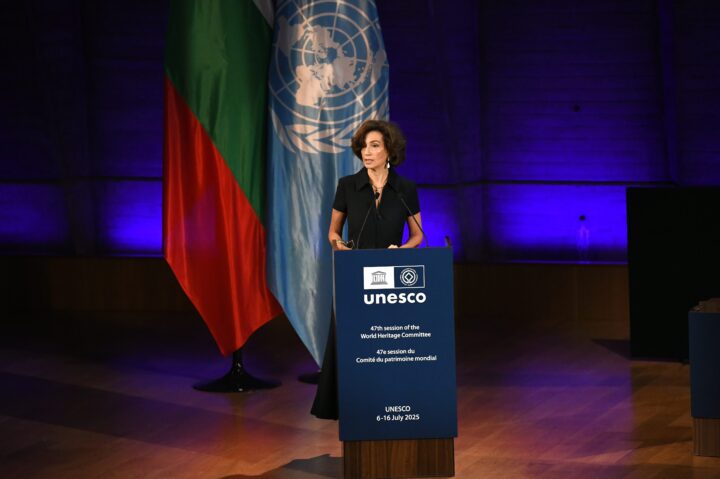
Li Yang/China News Service/VCG via Getty Images
Audrey Azoulay, director-general of the United Nations Educational, Scientific and Cultural Organization (UNESCO), delivers a speech during the opening ceremony of the 47th session of the World Heritage Committee on July 7, 2025 in Paris, France.
When Audrey Azoulay was elected director-general of the United Nations Educational, Scientific and Cultural Organization in 2017, many U.N. watchers — including some of its staunchest critics — were pleasantly surprised that UNESCO’s members had selected a Jew to lead the organization for the first time since it was founded in 1946.
The timing of Azoulay’s come-from-behind two-vote victory over a Qatari competitor came with a tinge of irony: Just one day earlier, the United States and Israel had each announced their intention to withdraw from the body, citing its persistent anti-Israel slant and “extreme politicization.”
The organization tasked with preserving cultural heritage sites around the world has for decades faced accusations of political bias. President Ronald Reagan first pulled the U.S. out of the body in 1984 over allegations of anti-Western, pro-Soviet sentiment.
When UNESCO became the first U.N. body to vote to admit the “State of Palestine” as a full voting member in 2011, the U.S. cut funding to the organization. In 2016, UNESCO passed a controversial resolution about the Temple Mount in Jerusalem that ignored Jewish ties to the holy site. A year later, Israel and the U.S. cut ties entirely.
All of that was before Azoulay took the helm of UNESCO. Now her leadership is in the spotlight, after the Trump administration said last week that it would again depart the body, following President Joe Biden’s decision to reenter UNESCO in 2023. “UNESCO works to advance divisive social and cultural causes,” State Department spokesperson Tammy Bruce said this month, arguing that the organization perpetuates “a globalist ideological agenda for international development at odds with our America First foreign policy.”
But Azoulay, a former French culture minister who comes from an illustrious Moroccan Jewish family, said in a statement last week that “the situation has changed profoundly” since the U.S. departed UNESCO in 2018. “These claims also contradict the reality of UNESCO’s efforts, particularly in the field of Holocaust education and the fight against antisemitism,” she said. UNESCO declined to make Azoulay available for an interview, but a spokesperson noted that “the level of tension” within the body on Middle East issues “has been reduced, which is a unique situation in the U.N. system today.”
Her lobbying is unlikely to impact the Trump administration. But even without the U.S. as a member, UNESCO remains an important global organization with lofty goals: “to create solutions to some of the greatest challenges of our time, and foster a world of greater equality and peace.” Azoulay has bought into that mission, with the added challenge of trying to make the organization less politically toxic in a polarized world.
“She really came into office intent on changing UNESCO’s public image and internal work,” Deborah Lipstadt, the former U.S. special envoy to monitor and combat antisemitism, told Jewish Insider this week. She has worked with Azoulay on antisemitism-related programming since 2018. “I think she recognized the flaws that had been prevalent before, and I think she was really trying to turn things around, and she deserves great credit for that.”
Azoulay grew up in France, but her family hails from Essaouira, a seaside Moroccan city that was once majority Jewish, though she rarely speaks about her family’s story. Her father, André Azoulay, spent the first two decades of his career climbing the ranks at Paribas Bank in Paris, before he returned to Morocco in 1990 to serve as an advisor to King Hassan II. Now, he is a senior advisor to King Mohammed VI, and his influence is rumored to be expansive.
“She is a really remarkable person, to have come from this Moroccan Jewish background, to become so French that she’s a minister in the French government, and then to achieve this position in UNESCO,” said Jason Guberman, executive director of the American Sephardi Federation. Whatever people want to say about UNESCO, I think you have to judge her by what she has done.”
“Azoulay is the kingdom’s all-purpose fixer, a man who gets stuff done thanks to an endless list of high-profile contacts who wouldn’t dare to ignore his calls,” Tablet Magazine wrote in a 2018 profile of the elder Azoulay.
When he inaugurated a structure called Beit Dakira — “House of Memory” — in Essaouira in 2020, to preserve the city’s Jewish heritage, his daughter attended the event on behalf of UNESCO. She has worked in several French government agencies, and before being named culture minister in 2016, Azoulay was an advisor to French President Francois Hollande.
“She is a really remarkable person, to have come from this Moroccan Jewish background, to become so French that she’s a minister in the French government, and then to achieve this position in UNESCO,” said Jason Guberman, executive director of the American Sephardi Federation, who attended the Essaouira event in 2020. He worked with Azoulay on a 2021 World Philosophy Event celebrating Muslim and Jewish poetry. “Whatever people want to say about UNESCO, I think you have to judge her by what she has done,” said Guberman.
UNESCO has worked closely with the World Jewish Congress in recent years, particularly on programming related to Holocaust education. Its president, Ronald Lauder, wrote in a 2018 op-ed that UNESCO’s history of dozens of resolutions condemning Israel “makes a mockery of the U.N.” Azoulay, he wrote, has been able to move the organization forward — to a point.
“She was able to accomplish some things diplomatically with Israel that hadn’t been done before. She got the president to come to Holocaust Remembrance Day, and that was the first time that ever happened,” said David Killion, who served as U.S. ambassador to UNESCO in the Obama administration.
“Audrey Azoulay, the new head of UNESCO, is making great strides correcting this and we applaud her for what she’s doing. But after decades of bad behavior at UNESCO, its reputation cannot be cleansed overnight. Especially when this virus of antisemitism still runs throughout the entire body of the U.N.,” Lauder wrote.
Azoulay reportedly urged Israel not to exit the organization in 2018, arguing at the time that UNESCO had made progress in fighting bias. Israel still left. But she pulled off a strategic victory in 2022.
“She was able to accomplish some things diplomatically with Israel that hadn’t been done before. She got the president to come to Holocaust Remembrance Day, and that was the first time that ever happened,” said David Killion, who served as U.S. ambassador to UNESCO in the Obama administration.
In Israeli President Isaac Herzog’s virtual remarks at a UNESCO Holocaust remembrance event in 2022, he directly praised Azoulay. They were unexpected words from a country that had previously offered sharp criticism of the organization.
“UNESCO has the tools with which to inform the younger generation about what happened and teach them what must never be allowed to happen again,” Herzog said. “I wish to recognize UNESCO Director-General Audrey Azoulay for her strong leadership.”
Azoulay said in a speech soon after the Oct. 7, 2023, Hamas terror attacks that UNESCO “was born out of the ashes of the Holocaust and the Second World War,” which is why, she said, fighting Holocaust denial remains a key priority of the organization.
That work has been done in partnership with the World Jewish Congress, American Jewish Committee, the U.S. Holocaust Memorial Museum and, for a period, the Biden administration. Former Second Gentleman Doug Emhoff met with Azoulay at the UNESCO headquarters in Paris last year and pledged that the U.S. would contribute $2.2 million to a UNESCO program to teach about the Holocaust and genocide.
But the agency’s commitment to fighting antisemitism has been tested since Oct. 7.
Speaking to a global gathering of antisemitism special envoys two weeks after the attacks, Azoulay said the Hamas terrorists operated “in the same modus operandi as the pogroms.” After the “massacres” that day, Azoulay added, “We have seen a new wave of antisemitism, regrettably with all the hallmarks of our time.”
Since then, though, UNESCO has mostly directed its ire at Israel’s actions in Gaza. Critics have noted, for instance, that UNESCO has warned of damage to cultural heritage sites in Gaza and Lebanon, while not expressing the same degree of concern about sites in Israel. At a recent meeting of UNESCO’s executive board, the agency voted to approve several measures calling out Israel’s actions in Gaza, the West Bank and the Golan Heights.
“That kind of stuff remains, and it’s really bigger than her, because I think that’s the point with any U.N. [agency]. The system is so geared against Israel,” said Anne Herzberg, legal advisor at NGO Monitor, a research institute that is critical of the U.N. system. “I do think she’s well-intentioned, and I do think she has made efforts to try to depoliticize the agency. I don’t want to cast aspersions on her at all, but I do think the problem is, you’re operating in a system that’s almost impossible to change.”











